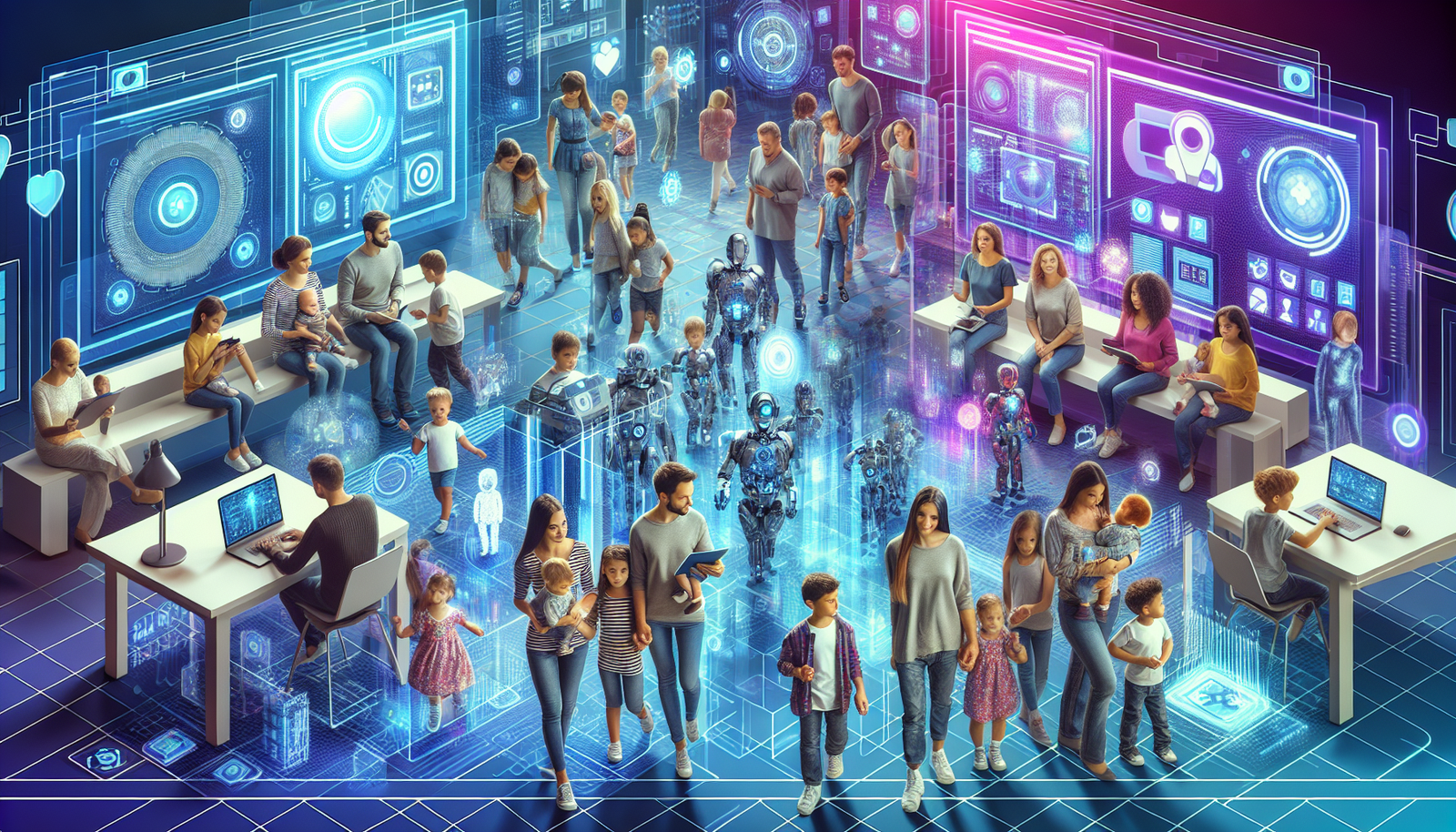Introducing young children to artificial intelligence remains a fundamental educational challenge. This challenge requires parents and teachers to have a deep understanding of contemporary digital tools. Early learning of these *technologies* prepares future citizens to navigate a rapidly changing world. Being aware of the *risks and opportunities* related to AI is essential for wisely guiding children. Providing *hands-on experiences* that are fun and enriching promotes a proactive and informed approach.
Parents and teachers: introducing young children to artificial intelligence
Educational stakeholders, parents, and teachers, must adopt a proactive approach to introduce artificial intelligence (AI) to young children. Currently, AI is permeating every aspect of daily life, making this introduction to technology even more necessary. By implementing appropriate methods, each stakeholder can contribute to forming a generation familiar with these concepts.
Understanding the basics of AI
Before conveying information, it is essential for parents and teachers to understand the fundamental principles of AI. The properties of data, concepts of machine learning, and algorithms should be key elements of this understanding. Addressing these topics in a simple yet precise manner will frame discussions with children.
Using playful tools
Appropriate and playful tools, such as educational games on AI, promote children’s engagement. Platforms like Scratch or interactive applications allow for an immediate and intuitive approach. The gamification of the learning process stimulates natural curiosity and encourages exploration.
Hands-on workshops and unplugged activities
Unplugged workshops, where children manipulate physical objects to understand AI concepts, generate a lot of enthusiasm. An activity like the Nim game can introduce concepts of reinforcement learning in a concrete and fun way. These hands-on experiences promote information retention.
Raising awareness of ethical issues and responsibility
It is imperative to discuss the ethical issues surrounding AI, such as questions of bias or privacy. These discussions help children develop critical awareness from a young age. Address these issues together to help them understand the impact of these technologies on their daily lives.
Activating discussions around AI
Organizing open discussions on various aspects of AI, such as its history or future, enriches children’s knowledge. Parents can engage in informal conversations, showing their interest in the topic. This paves the way for better understanding and enriching questioning.
Encouraging parents in digital learning
Parents, through their involvement, play a fundamental role in educating children about AI. They should consider taking online courses alongside their children. These shared experiences foster a dynamic learning environment and strengthen family bonds.
Collaboration between parents and teachers
A close collaboration between parents and teachers is essential to maximize the impact of this educational initiative. By sharing methods and resources, all parties can work together to support children’s learning. Consulting educational staff will help guide the selection of the most appropriate tools and resources.
Information resources and support
Accessing reliable educational resources can guide parents and teachers in learning about AI. Various organizations offer suitable documents and training. Combining theory and practice, these resources enhance the skills and informativeness of those involved with young children.
Guiding children in learning emerging technologies prepares them for the future. Equipping future generations with the necessary tools will enable them to thrive in a constantly evolving world.
Guide to frequently asked questions about introducing young children to artificial intelligence
What is artificial intelligence and why is it important for children?
Artificial intelligence (AI) refers to computer systems capable of performing tasks that typically require human intelligence, such as learning and problem-solving. Introducing children to AI is important as it prepares them for a technological future, develops their critical thinking, and enhances their understanding of modern tools.
At what age is it appropriate to start teaching AI to young children?
There is no specific age, but one can begin introducing basic concepts as early as 5 years old through games and playful activities that utilize simple AI principles.
What tools can help introduce children to artificial intelligence?
Educational platforms like Scratch, interactive applications, and games that explain the basics of AI are ideal. Tools like programmable robots can also make learning more engaging.
How can parents encourage AI learning at home?
Parents can encourage learning by discussing the technologies they use, watching educational videos together, and participating in AI projects like developing small programs.
What role should teachers play in introducing AI?
Teachers should integrate AI into their curriculum using interactive methods, creating projects based on real-world AI use cases, and raising student awareness of ethical and societal implications.
What precautions should be taken when teaching AI to children?
It is essential to keep online safety in mind, explain personal data concepts, and instill critical thinking about the information shared online.
How can one assess whether a child has understood AI concepts well?
Parents and teachers can observe the child’s ability to discuss ideas, solve simple AI-related problems, and apply concepts in practical projects.
Are there specific resources recommended for parents and teachers?
Yes, there are many books, online courses, and workshops focused on AI education for children. Resources like MOOCs or specialized educational websites can be a good starting point.
What are the risks or challenges associated with AI education?
The main challenges include information overload, understanding ethical implications, and managing technology dependency. It is crucial to frame learning with discussions and reflections.






